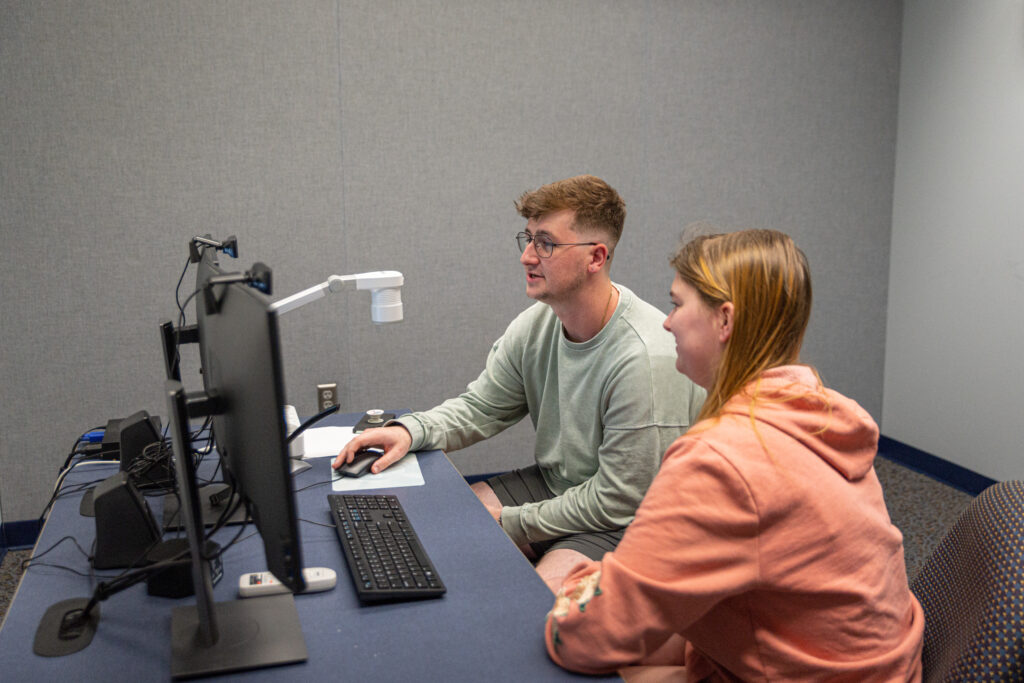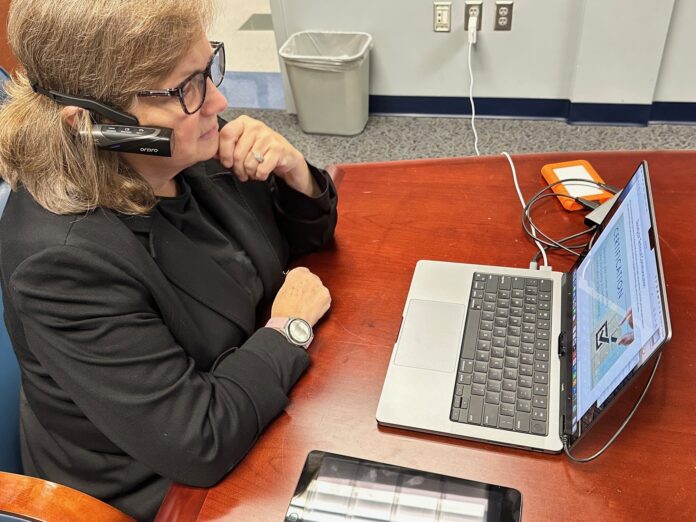
Mercer University technical communication professors and students will be able to take their usability testing and research to the next level with an innovative mobile lab.
The Technical Communication Department already has a research lab outfitted with computers, cameras and technology that monitors biometric information like pulse rate, blood pressure and eye-tracking. Here, in the Science and Engineering Building on the Macon campus, volunteers can be observed as they navigate websites and apps, which provides vital information on how digital user experiences can be improved.
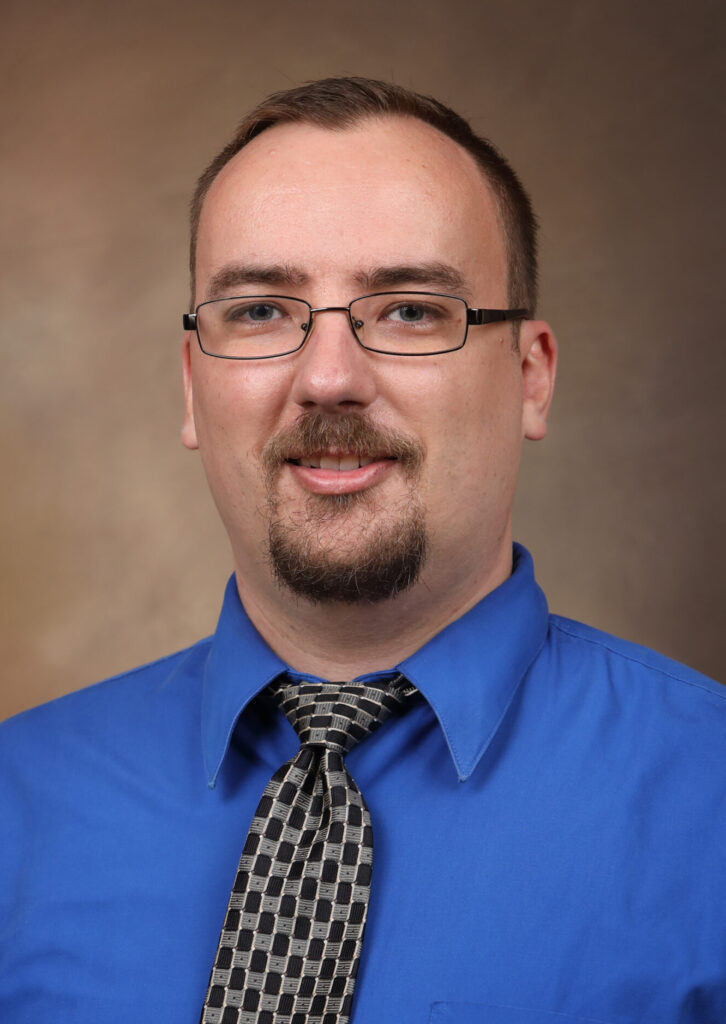
Students and faculty also sometimes do remote usability testing with participants through video conferencing platforms like Zoom. However, both of these testing options have limitations.
“When you do user testing, the most important thing is the user,” said Dr. Bremen Vance, assistant professor of technical communication. “Getting people to volunteer to help you test a design is one hurdle, but the bar becomes a lot lower when you say, ‘I’ll come to you.’ One of the limitations of a lot of user research is if you bring people to your space, they’re not really working where they are. It’s an unfamiliar environment, so you lose a little bit of authenticity. It’s that much more accurate if we can get people in their spaces and observe what they’re doing in places they’re comfortable.”
This fall, technical communication faculty finished assembling a portable user experience lab that will allow them to conduct usability testing anywhere. All the necessary technology is packed into a case the size of carry-on luggage, offering practically all the same capabilities as the physical lab on campus, Dr. Vance said.
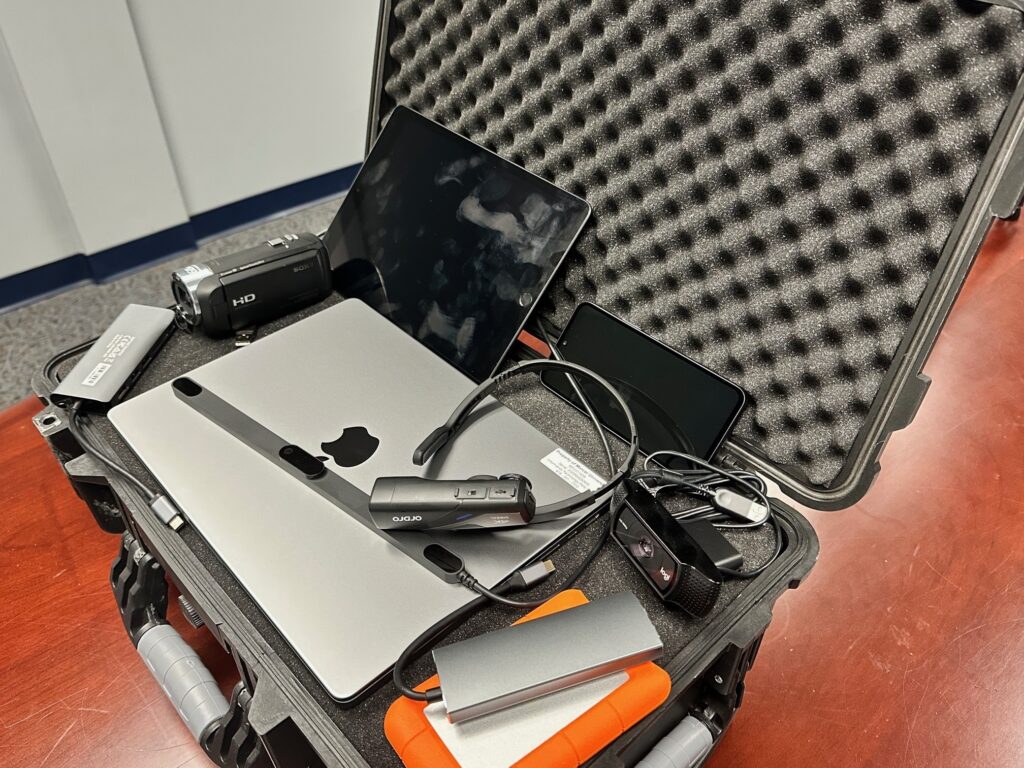
“We don’t know any other (university) programs that currently have a functioning mobile kit,” he said. “It’s kind of a unique assemblage. We’ve designed this system, what to include in the kit and how to set it up ourselves. We’re probably one of the most innovative programs I’m aware of.”
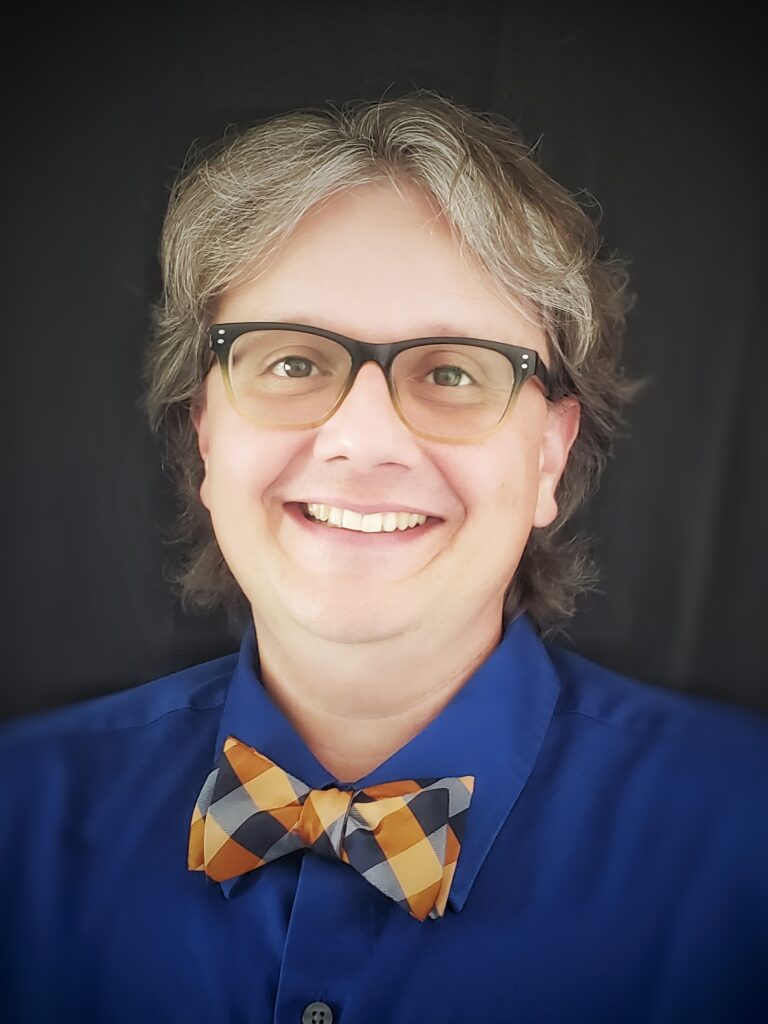
Dr. Philip Gallagher, assistant professor of technical communication, and Dr. Guiseppe Getto, associate professor of technical communication, have plans to use the mobile kit in their research and with their classes this year.
In partnership with the Global Partnership for Telehealth, Dr. Gallagher has been working to develop, benchmark and test the Americans with Disabilities Act compliance of Pathways telehealth applications. In the future, he and his students will be able to take the mobile kit to individuals with vision and motor-mobility disabilities and record their experiences interacting with the sites, he said.
“We need to be able to go out in the field to participants, community partners and other individuals that have a stake in our projects and do testing with them and the clients they serve in real time and in their own space,” Dr. Gallagher said.
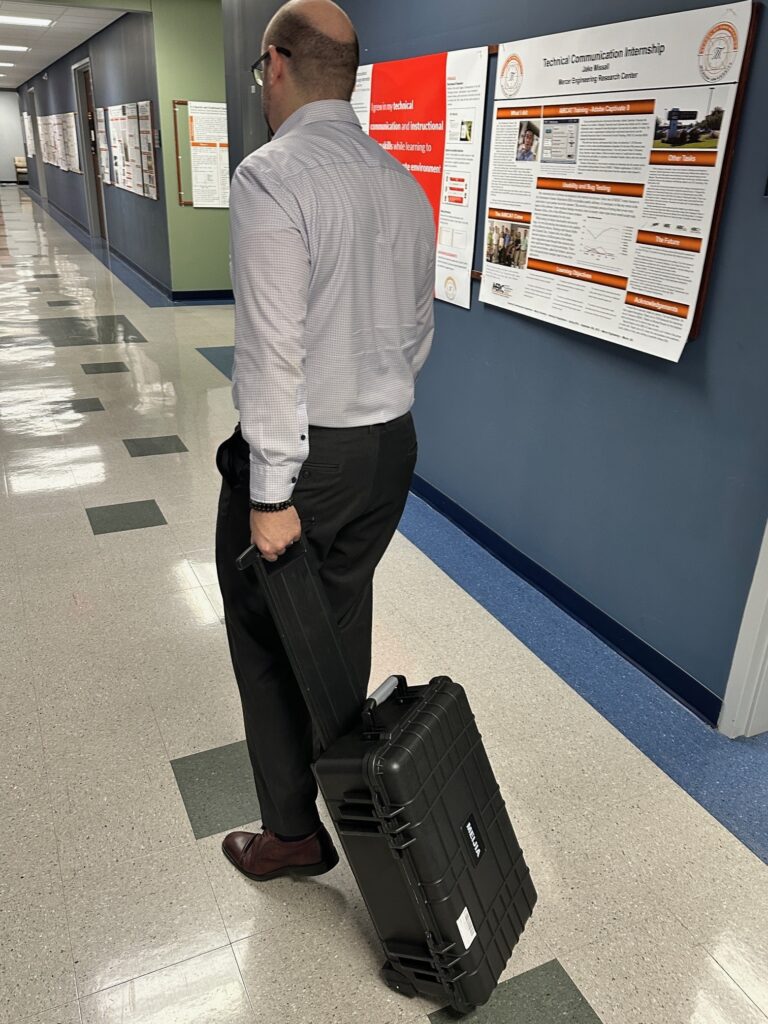
In addition, Dr. Gallagher has taken the reins of an ongoing Mercer project with the U.S. Department of Homeland Security. For the past several years, technical communication students have conducted usability testing and provided feedback that led to the redesign of homeland security websites. This spring, they will be able to expand their pool of participants by bringing the testing to them via the mobile kit, providing new data for the project, he said.
For a separate project, Dr. Gallagher will use the mobile lab to evaluate the faculty research website of Georgia College & State University’s Center for Teaching and Learning.
Dr. Getto will utilize the mobile lab for a boater safety app he has been developing in partnership with startup company SeaMe.
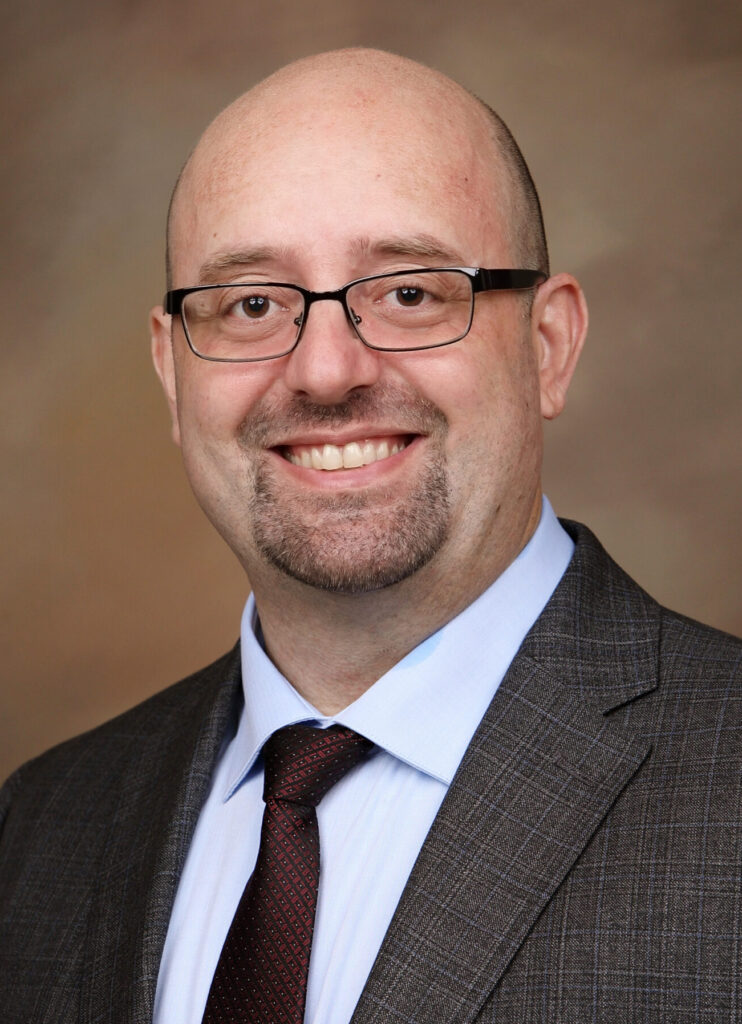
“You can have a boater come into a lab and test out this mobile app, but it doesn’t replicate their setting and their context,” he said. “They’re going to be on a boat with a phone in their hand, so the best way to test is to go to where they are.”
This mobile lab will give Mercer students practical experience that more closely mirrors what they might encounter in the field in the real world, Dr. Getto said. Most user experience testing today isn’t happening in the lab but wherever the users are.
“The biggest thing this does for us, other than flexibility, is it makes some of what we do a little bit easier to showcase,” Dr. Vance said. “So much of the research that we do, people don’t understand what goes into it. I think making the work a little bit more accessible, visible and out there is going to be really important for our program. We do a lot of exciting work, but we need people to be able to see it.”
